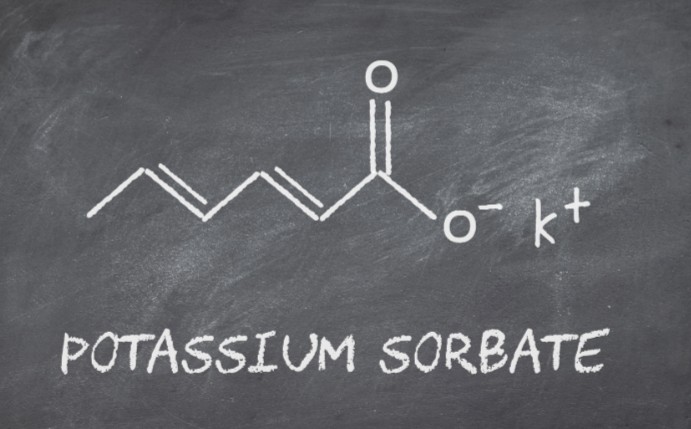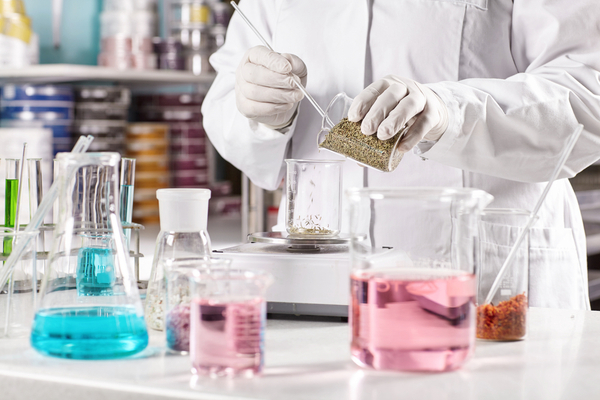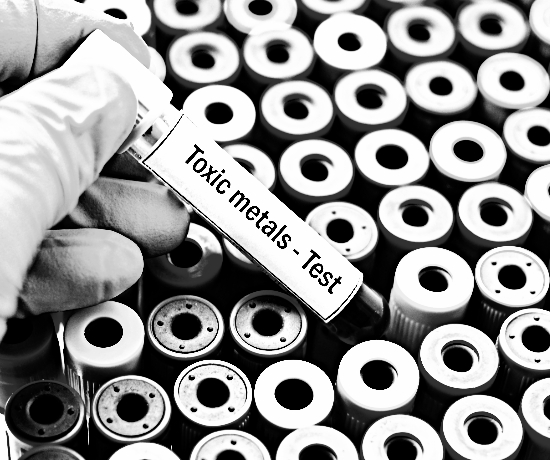Potassium Sorbate in Food Supplements and Nutraceuticals
Abstract
Potassium sorbate is a widely utilised preservative in the food, beverage, and nutraceutical industries due to its potent antimicrobial properties, low toxicity, and cost-effectiveness. This review provides a scientific overview of its application in food supplements, focusing on its mechanism of action, regulatory status, metabolic fate, safety profile, and formulation considerations. Comparative advantages over alternative preservatives, natural replacement strategies, and consumer perception are also discussed.
Introduction
Preservatives play an essential role in extending the shelf life and ensuring the microbiological safety of food supplements. These products, particularly those in liquid or semi-solid form, are susceptible to microbial contamination due to their water activity, nutrient content, and absence of sterilising processes. Contamination can lead to spoilage, loss of potency, undesirable sensory changes, and, in some cases, risks to consumer health. Preservatives are, therefore, necessary not only for prolonging shelf life but also for maintaining product integrity, consistency, and compliance with regulatory microbiological standards.
The growing trend toward natural health products and clean-label formulations has created new challenges for supplement manufacturers, as many traditional preservatives are under scrutiny or rejected by certain consumer groups. Within this context, potassium sorbate (E202) is particularly notable for its broad-spectrum activity against fungi and select bacteria, as well as its favourable safety and regulatory profile. It is widely employed in liquid and semi-solid nutraceutical formulations, including herbal extracts, vitamin solutions, and liposomal suspensions, where the risk of microbial spoilage is elevated. This review explores the scientific rationale behind its use and evaluates its regulatory, toxicological, and formulation-related implications.
Chemical Nature and Mechanism of Action

Potassium sorbate, the potassium salt of sorbic acid (C₆H₇KO₂), is a naturally occurring unsaturated fatty acid initially isolated from the berries of the rowan tree. In aqueous environments, it dissociates to release sorbic acid, the primary antimicrobial agent. Sorbic acid primarily acts by disrupting microbial cell membranes and inhibiting enzymes essential to microbial energy metabolism. Its efficacy is highly pH-dependent, with optimal antimicrobial activity observed at or below pH 6.0, where the undissociated form predominates and can readily penetrate microbial cell walls.
Applications in Nutraceuticals
In the context of food supplements, potassium sorbate is frequently used in the following formats:
– Liquid multivitamins and mineral solutions
– Functional beverages, including those containing collagen, probiotics, or polyphenols
– Liposomal or nanoemulsion-based formulations
– Gel-based and rehydrated powdered supplements

Its preservative effect is especially valuable in formulations lacking alcohol or artificial stabilisers. Potassium sorbate is often selected for “clean-label” products where the use of parabens, benzoates, or sulphites is avoided for consumer acceptability.
Regulatory and Safety Profile
Potassium sorbate is approved globally by major regulatory agencies. The United States Food and Drug Administration (FDA) classifies it as Generally Recognized As Safe (GRAS)¹. The European Food Safety Authority (EFSA) has set an acceptable daily intake (ADI) of 3 mg/kg body weight/day ², while the Joint FAO/WHO Expert Committee on Food Additives (JECFA) allows a more permissive ADI of 25 mg/kg body weight/day ³.
Once ingested, potassium sorbate is rapidly absorbed in the gastrointestinal tract and metabolised via β-oxidation in the liver, a process analogous to the metabolism of short-chain fatty acids 4. The end products are carbon dioxide and water, excreted via respiration and urine. No accumulation in body tissues has been reported 5.
Toxicological assessments from multiple international bodies confirm the preservative’s safety when used within regulated limits. Long-term animal studies have shown no evidence of carcinogenicity, reproductive toxicity, or teratogenic effects ²,5.

Moreover, human exposure studies and food additive surveillance consistently support its high safety margin. It is also non-mutagenic, non-sensitising, and does not induce chromosomal aberrations in validated test models, reinforcing its position as one of the safest preservatives currently in use.
Comparative Advantages
Compared to other common preservatives used in supplements, potassium sorbate offers several benefits. It has a lower allergenic potential than sulphites, is not associated with endocrine-disrupting properties like parabens, and is more effective against yeasts and moulds than benzoates in mildly acidic media (pH 4.5–6.0) ²,5.
Formulation Considerations
Potassium sorbate is typically used in concentrations ranging from 0.025% to 0.1% w/w, with an upper legal limit of 0.3% in food products ¹. Its efficacy is pH-dependent, so maintaining the product pH below 6.0 is crucial for optimal performance. In many formulations, it is paired with antioxidants such as ascorbic acid or tocopherols to enhance overall stability.
Excessive levels may cause minor off-flavours, such as bitterness, especially in aqueous or flavoured products. It is generally stable under standard storage conditions but may degrade under high humidity or light exposure.
Consumer and Industry Perspectives
Potassium sorbate is generally well accepted by consumers, particularly those seeking preservative efficacy without controversial additives. Its mild profile, regulatory safety, and compatibility with “natural” claims support its inclusion in clean-label formulations. However, some consumers, especially those in the organic or naturopathic segments, prefer preservative-free alternatives, prompting manufacturers to explore combinatory strategies (e.g., natural antimicrobial blends or pH control) to reduce or eliminate its use without compromising safety.
Unfortunately, some manufacturers exploit this trend and falsely claim their products are “potassium sorbate-free” while still using it or related derivatives, constituting a form of food fraud that misleads consumers and violates labelling regulations.
Natural Alternatives to Potassium Sorbate
A number of natural or nature-identical alternatives to potassium sorbate have been explored, including natamycin (E235), nisin (E234), fermented plant-derived antimicrobials, and essential oils such as rosemary and oregano. While these compounds offer antimicrobial activity and appeal to clean-label markets, they typically suffer from narrower spectra of activity, formulation challenges, sensory impact, and inconsistent regulatory status 2, 3, 5, 6. Natamycin, for example, is effective against moulds but poorly soluble in water; nisin is potent against Gram-positive bacteria but lacks antifungal efficacy. Plant-based ferments and essential oils may contribute to preservation but often require high concentrations that affect taste or stability.
As such, no single natural preservative currently matches potassium sorbate in terms of broad-spectrum efficacy, cost-effectiveness, pH compatibility, and global regulatory approval, especially in aqueous or acidic nutraceutical formulations.
Conclusion
Potassium sorbate continues to play a vital role in the formulation of safe, stable, and consumer-friendly food supplements. Its antimicrobial efficacy, metabolic safety, and international regulatory acceptance make it a trusted preservative for nutraceutical manufacturers. While ongoing innovation may reduce reliance on synthetic preservatives, potassium sorbate remains an indispensable tool in the development of high-quality, shelf-stable products.
References
- FDA. Code of Federal Regulations, Title 21, §182.3640. GRAS Substances.
- EFSA Panel on Food Additives and Nutrient Sources (ANS). (2015). Scientific Opinion on the re-evaluation of sorbic acid (E200), potassium sorbate (E202), and calcium sorbate (E203). EFSA Journal, 13(4), 4144.
- JECFA. (2001). Evaluation of Certain Food Additives and Contaminants. WHO Technical Report Series No. 901.
- PubChem. Potassium Sorbate – CID 23672308. National Center for Biotechnology Information.
- Davidson, P. M., Sofos, J. N., & Branen, A. L. (Eds.). (2005). Antimicrobials in Food. CRC Press.
- Cosmetic Ingredient Review (CIR). (2006). Final Report on the Safety Assessment of Sorbic Acid and Potassium Sorbate. International Journal of Toxicology, 25(Suppl. 1), 29–65.

